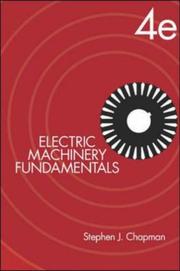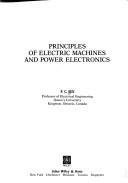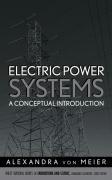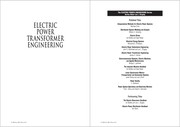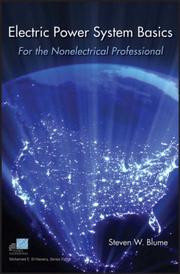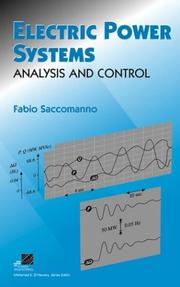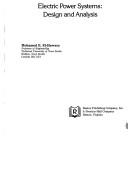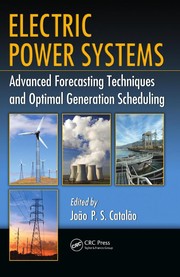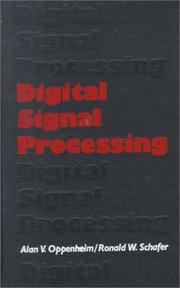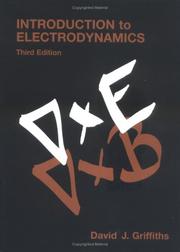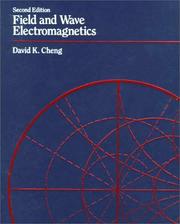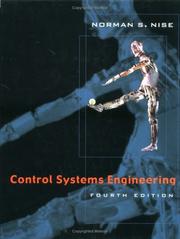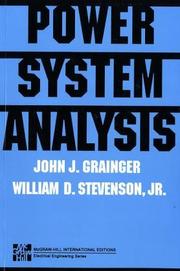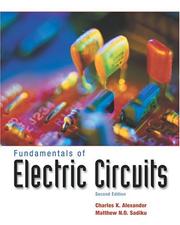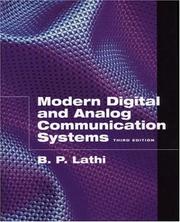Are you an electrical engineering enthusiast looking for the best books to enhance your knowledge and skills? Look no further! We’ve compiled a list of the 20 best books about electrical engineering that are sure to spark your interest. Whether you’re a student, a professional, or simply passionate about the subject, these books on electrical engineering cover a wide range of topics, from fundamentals to advanced techniques. Get ready to dive into the world of circuits, electronics, power systems, and more with these comprehensive and insightful reads. Let’s explore the top-rated electrical engineering books that will electrify your mind!
Contents
- 1 20 Best Electrical Engineering Books
- 2 Introduction to Electric Circuits
- 3 Electric Machinery Fundamentals
- 4 Principles of Electric Machines and Power Electronics
- 5 Electric Power Systems: A Conceptual Introduction
- 6 Electric Power Distribution Engineering
- 7 Electric Power Transformer Engineering
- 8 Electric Power System Basics for the Nonelectrical Professional
- 9 Electric Power Systems: A First Course
- 10 Electric Power Systems: Analysis and Control
- 11 Electric Power Systems: Design and Analysis
- 12 Electric Power Systems: Advanced Forecasting Techniques and Optimal Generation Scheduling
- 13 Electric Power Systems: Advanced Optimization Techniques
- 14 Microelectronic Circuits
- 15 Digital Signal Processing
- 16 Introduction to Electrodynamics
- 17 Field and Wave Electromagnetics
- 18 Control Systems Engineering
- 19 Power System Analysis
- 20 Fundamentals of Electric Circuits
- 21 Modern Digital and Analog Communication Systems
- 22 Final Thoughts on Best Electrical Engineering Books
- 23
20 Best Electrical Engineering Books
Introduction to Electric Circuits
by James A. Svoboda
Introduction to Electric Circuits by James A. Svoboda is a comprehensive and accessible book on electrical engineering that provides a solid foundation for understanding the principles of electric circuits. The book covers essential topics such as circuit analysis, voltage and current laws, capacitors, inductors, and AC circuits. With clear explanations and numerous examples, it is suitable for both beginners and those with some prior knowledge of the subject.
Svoboda’s writing style is engaging and easy to follow, making complex concepts understandable for readers. The book also includes practical applications and real-world examples to demonstrate the relevance of electric circuits in various engineering fields. Whether you’re a student looking to grasp the fundamentals or a professional seeking a refresher, this electrical engineering book is a valuable resource for anyone interested in the subject. With its emphasis on clarity and practical relevance, Introduction to Electric Circuits is a must-have for anyone studying or working in the field of electrical engineering.
Electric Machinery Fundamentals
by Stephen J. Chapman
Electric Machinery Fundamentals by Stephen J. Chapman is a comprehensive and accessible book on electrical engineering. The author, a renowned expert in the field, provides a clear and concise overview of the principles and applications of electric machinery. This book covers essential topics such as magnetic circuits, transformers, AC and DC machines, and synchronous and induction motors.
Chapman’s writing is engaging and easy to understand, making complex electrical engineering concepts accessible to students and professionals alike. The book also includes numerous examples, exercises, and illustrations to help readers grasp the material and apply it to real-world situations.
Whether you are a student looking to build a strong foundation in electrical engineering or a practicing engineer seeking to deepen your understanding of electric machinery, this book is an invaluable resource. With its practical approach and comprehensive coverage, Electric Machinery Fundamentals is a must-read for anyone interested in the field of electric machinery and electrical engineering.
Principles of Electric Machines and Power Electronics
by P.C. Sen
Principles of Electric Machines and Power Electronics by P.C. Sen is a comprehensive book on electrical engineering that provides a thorough understanding of the principles and applications of electric machines and power electronics. The book covers essential topics such as the principles of electromechanical energy conversion, the characteristics of electric motors and generators, and the principles of power electronics and their applications in power systems.
With a clear and concise writing style, P.C. Sen presents complex concepts in a manner that is accessible to students and professionals alike. The book also includes numerous examples, illustrations, and problems to help readers apply the principles in real-world scenarios. Whether you are a student looking to grasp the fundamentals of electric machines and power electronics or a professional seeking a comprehensive reference, this book about electrical engineering is an invaluable resource that will deepen your understanding of these crucial technologies.
Electric Power Systems: A Conceptual Introduction
by Alexandra von Meier
Electric Power Systems: A Conceptual Introduction by Alexandra von Meier is a must-read for anyone interested in the field of electrical engineering. This comprehensive book offers a conceptual approach to understanding the complexities of electric power systems, making it accessible to both students and professionals in the field.
Von Meier takes readers on a journey through the fundamental concepts of electric power systems, covering everything from basic principles to advanced topics. With clear explanations and real-world examples, the book provides a solid foundation for understanding the operation, control, and design of electric power systems.
Whether you are a student looking to grasp the fundamentals of electric power systems or a professional seeking to deepen your knowledge in the field, this book is an invaluable resource. Von Meier’s engaging writing style and comprehensive coverage of the subject make Electric Power Systems: A Conceptual Introduction a standout in the realm of electrical engineering literature.
Electric Power Distribution Engineering
by Turan Gonen
Electric Power Distribution Engineering by Turan Gonen is a comprehensive and insightful book on electrical engineering that delves into the complex world of electric power distribution. Gonen, a well-respected expert in the field, provides a thorough exploration of the principles and practices of power distribution systems, making this book a valuable resource for students and professionals alike.
Readers will find the book to be well-organized, with clear explanations of topics such as distribution system planning, design, operation, and control. The book also covers important aspects of electric power quality, reliability, and modern distribution automation systems.
With its practical approach and real-world examples, Electric Power Distribution Engineering offers a deep understanding of the challenges and solutions in the field of power distribution. Whether you are a student looking to expand your knowledge or a professional seeking to enhance your skills, this book about electrical engineering is an essential addition to your library.
Electric Power Transformer Engineering
by James H. Harlow
Electric Power Transformer Engineering by James H. Harlow is a comprehensive and authoritative book on electrical engineering that provides a detailed overview of the design, construction, and operation of power transformers. This book delves into the fundamental principles of transformer engineering, covering topics such as transformer design, materials, insulation, testing, and maintenance. Harlow’s extensive experience in the field shines through in this book, providing readers with practical insights and real-world examples.
Whether you’re a student, professional engineer, or someone with a keen interest in electrical engineering, this book about electrical engineering serves as an invaluable resource. It offers a blend of theoretical knowledge and practical applications, making it an essential read for anyone looking to deepen their understanding of power transformers. With its clear and concise explanations, Electric Power Transformer Engineering is a must-have for anyone seeking to expand their knowledge in the field of electrical engineering.
Electric Power System Basics for the Nonelectrical Professional
by Steven W. Blume
Electric Power System Basics for the Nonelectrical Professional, written by Steven W. Blume, is a comprehensive guide for anyone looking to gain a fundamental understanding of the intricacies of power systems without a background in electrical engineering. This book delves into the essential concepts of electric power systems, including generation, transmission, distribution, and utilization, making it an invaluable resource for professionals from various disciplines who interact with electrical systems.
Blume’s clear and accessible writing style, along with real-world examples and practical applications, ensures that readers can grasp complex electrical engineering concepts with ease. Whether you’re a project manager, urban planner, or environmental engineer, this book provides the knowledge and insight needed to navigate the complexities of electric power systems. Electric Power System Basics for the Nonelectrical Professional is an essential read for anyone seeking to enhance their understanding of power systems and their impact on the modern world.
Electric Power Systems: A First Course
by Ned Mohan
Electric Power Systems: A First Course by Ned Mohan is an essential resource for anyone looking to delve into the world of electrical engineering. This comprehensive book is perfect for beginners as it provides a solid foundation in electric power systems, making it a great starting point for those new to the field.
Mohan’s writing style is engaging and easy to understand, making complex topics accessible to readers. The book covers a wide range of important concepts, including power system modeling, analysis, and control, as well as renewable energy systems and smart grids. With its clear explanations and practical examples, this book is an invaluable tool for students and professionals alike.
Whether you’re a student looking to expand your knowledge or a working professional seeking to deepen your understanding of electric power systems, this book about electrical engineering is a must-have addition to your library. Trust in Ned Mohan’s expertise and let Electric Power Systems: A First Course be your guide to mastering the fundamentals of electrical engineering.
Electric Power Systems: Analysis and Control
by Fabio Saccomanno
Electric Power Systems: Analysis and Control is a comprehensive book on electrical engineering that delves deep into the concepts of power system analysis and control. Authored by Fabio Saccomanno, this book provides a detailed overview of the fundamentals of electric power systems, covering topics such as power flow analysis, transient stability, and voltage control.
With a focus on both theoretical principles and practical applications, this book offers a valuable resource for students, researchers, and professionals in the field of electrical engineering. The author combines theoretical explanations with real-world examples, making the complex subject matter more accessible to readers. Additionally, the book includes numerous exercises and examples to reinforce learning and facilitate a deeper understanding of the material.
Whether you are a student looking to build a strong foundation in electrical engineering or a practicing engineer seeking to enhance your knowledge and skills, Electric Power Systems: Analysis and Control is a must-read for anyone interested in the field of power systems and control.
Electric Power Systems: Design and Analysis
by Mohamed E. El-Hawary
Electric Power Systems: Design and Analysis by Mohamed E. El-Hawary is a comprehensive and insightful book on electrical engineering, covering the fundamental principles and advanced techniques for designing and analyzing electric power systems. This book provides a deep understanding of the complex network of power generation, transmission, and distribution, as well as the challenges and solutions in modern power system design.
El-Hawary’s book about electrical engineering emphasizes the practical applications of power system analysis, including load flow, short-circuit analysis, and transient stability studies. It also delves into the integration of renewable energy sources, smart grid technologies, and power system protection.
With a clear and engaging writing style, this electrical engineering book is suitable for both students and professionals in the field. It offers valuable insights into the latest developments in power system design and equips readers with the knowledge and tools to tackle real-world challenges in the power industry.
Electric Power Systems: Advanced Forecasting Techniques and Optimal Generation Scheduling
by João P. S. Catalão
Electric Power Systems: Advanced Forecasting Techniques and Optimal Generation Scheduling by João P. S. Catalão is a comprehensive book on electrical engineering that delves into the intricacies of power systems and generation scheduling. Catalão presents cutting-edge forecasting techniques that are essential for optimizing the performance of power systems, ensuring their reliability and efficiency.
This book about electrical engineering covers a wide range of topics, including renewable energy integration, demand-side management, and smart grid technologies. Catalão also explores the use of advanced mathematical models and optimization algorithms to address the challenges of power generation scheduling in modern electrical grids.
Whether you are a student, researcher, or industry professional in the field of electrical engineering, this book provides valuable insights and practical solutions for enhancing the operation and planning of electric power systems. With its clear explanations and real-world examples, Electric Power Systems is a must-read for anyone interested in the future of energy systems.
Electric Power Systems: Advanced Optimization Techniques
by João P. S. Catalão
Electric Power Systems: Advanced Optimization Techniques by João P. S. Catalão is a comprehensive book on electrical engineering that delves into the cutting-edge optimization techniques used in the design and operation of electric power systems. With a focus on advanced mathematical models and algorithms, this book offers a deep exploration of optimization methods for addressing complex challenges in electrical engineering.
Readers will gain a thorough understanding of the latest advancements in power system optimization, including economic dispatch, unit commitment, and power system planning. Catalão provides practical insights into the application of optimization techniques for enhancing the efficiency, reliability, and sustainability of electric power systems.
Whether you’re a student, researcher, or professional in the field of electrical engineering, this book offers valuable knowledge and tools for tackling real-world optimization problems in electric power systems. With its clear explanations and real-world examples, Electric Power Systems: Advanced Optimization Techniques is an essential resource for anyone seeking to deepen their expertise in this vital area of electrical engineering.
Microelectronic Circuits
by Adel S. Sedra, Kenneth C. Smith
Microelectronic Circuits by Adel S. Sedra and Kenneth C. Smith is a comprehensive and widely acclaimed book on electrical engineering. It provides a thorough understanding of microelectronic circuits and their applications, making it an essential resource for students and professionals in the field.
The book covers a wide range of topics, including semiconductor devices, analog and digital integrated circuits, and practical design considerations. With its clear and concise explanations, numerous examples, and practical problem-solving approach, it offers a solid foundation for understanding the complexities of microelectronic circuits.
Whether you are a student looking to gain a deeper understanding of microelectronic circuits or a professional seeking to enhance your knowledge and skills in the field, this book about electrical engineering is an invaluable resource. It is an essential reference for anyone interested in the design, analysis, and applications of microelectronic circuits.
Digital Signal Processing
by Alan V. Oppenheim, Ronald W. Schafer
Digital Signal Processing by Alan V. Oppenheim and Ronald W. Schafer is a comprehensive and insightful book on the field of signal processing, which is an essential aspect of modern technology and communication systems. This book provides a detailed exploration of digital signal processing techniques, algorithms, and applications, making it a valuable resource for students and professionals in the field of electrical engineering.
The authors present complex concepts in a clear and accessible manner, with numerous examples and illustrations to aid understanding. Readers will gain a deep understanding of fundamental principles such as sampling, filtering, and spectral analysis, as well as more advanced topics including multirate signal processing and adaptive filtering.
Whether you are a student looking to build a strong foundation in signal processing or a professional seeking to expand your knowledge and skills in the field, Digital Signal Processing is an indispensable resource that will enhance your understanding and proficiency in this rapidly evolving area of technology.
Introduction to Electrodynamics
by David J. Griffiths
Introduction to Electrodynamics by David J. Griffiths is a cornerstone textbook for students studying electromagnetism. This highly acclaimed book on electrical engineering presents the principles of electromagnetism in a clear and engaging manner, making it an essential read for anyone interested in the field. Griffiths’ writing style is accessible and concise, making complex concepts easy to understand.
The book about electrical engineering covers a wide range of topics, including electrostatics, magnetostatics, electromagnetic waves, and more. It also includes numerous examples and problems to help readers apply the theoretical concepts to real-world situations. Whether you are a student learning about electromagnetism for the first time or a professional looking to refresh your knowledge, this electrical engineering book is an invaluable resource.
Introduction to Electrodynamics is widely regarded as one of the best textbooks in the field, and it continues to be a go-to resource for anyone interested in understanding the fundamental principles of electromagnetism.
Field and Wave Electromagnetics
by David K. Cheng
Field and Wave Electromagnetics by David K. Cheng is a comprehensive and authoritative book on electrical engineering that provides a thorough understanding of electromagnetic fields and waves. This book delves into the fundamental concepts and principles of electromagnetics, covering topics such as static electric and magnetic fields, electromagnetic waves, transmission lines, waveguides, and antennas.
Cheng’s clear and concise writing style makes complex theories and equations accessible to students and professionals alike. The book is filled with practical examples, illustrations, and exercises to help readers grasp the material and apply it to real-world problems. Whether you are a student looking to build a strong foundation in electromagnetics or a practicing engineer seeking to deepen your understanding of the subject, Field and Wave Electromagnetics is an invaluable resource.
Overall, this book about electrical engineering is an essential addition to any electrical engineer’s library, offering a wealth of knowledge and insight into the fascinating world of electromagnetics.
Control Systems Engineering
by Norman S. Nise
Control Systems Engineering by Norman S. Nise is a comprehensive and engaging book on electrical engineering that provides a thorough introduction to the principles and applications of control systems. Nise’s writing style is clear and accessible, making complex concepts easy to understand for both students and professionals in the field.
The book covers a wide range of topics, including mathematical modeling of systems, feedback control, stability analysis, and controller design. Nise also incorporates real-world examples and case studies to illustrate the practical applications of control systems in various industries, making the content relevant and engaging for readers.
With its emphasis on practical problem-solving and real-world applications, Control Systems Engineering is an essential resource for anyone studying or working in the field of electrical engineering. Whether you’re a student looking to build a strong foundation in control systems or a professional seeking to expand your knowledge, this book about electrical engineering is a valuable addition to your library.
Power System Analysis
by John Grainger, William Stevenson
If you’re looking for a comprehensive book on electrical engineering, “Power System Analysis” by John Grainger and William Stevenson is a must-read. This book provides a thorough understanding of the principles and techniques used in the analysis of power systems. With a clear and engaging writing style, the authors cover topics such as power flow, fault analysis, and economic operation of power systems.
Readers will appreciate the practical insights and real-world examples provided in this electrical engineering book, making complex concepts easier to grasp. The book also includes numerous exercises and problems to reinforce learning, making it an invaluable resource for students and professionals alike.
Whether you’re a student seeking a solid foundation in power system analysis or a practicing engineer looking to expand your knowledge, this book about electrical engineering is an essential addition to your library. With its in-depth coverage and practical approach, “Power System Analysis” is a go-to guide for anyone interested in understanding and mastering power systems.
Fundamentals of Electric Circuits
by Charles K. Alexander, Matthew N. O. Sadiku
Fundamentals of Electric Circuits is a comprehensive and accessible book on electrical engineering written by Charles K. Alexander and Matthew N. O. Sadiku. This widely acclaimed textbook provides a solid foundation in the basic principles of electric circuits, making it an essential resource for students and professionals alike.
The authors present complex concepts in a clear and engaging manner, using real-world examples and practical applications to help readers understand the fundamentals of electric circuits. The book covers topics such as Ohm’s law, Kirchhoff’s laws, network theorems, and circuit analysis techniques, providing a strong theoretical framework for electrical engineering students.
With its emphasis on problem-solving and critical thinking, Fundamentals of Electric Circuits equips readers with the skills and knowledge necessary to tackle the challenges of designing and analyzing electric circuits. Whether you’re a student looking to grasp the essentials of electric circuits or a professional seeking a refresher, this electrical engineering book is an invaluable resource.
Modern Digital and Analog Communication Systems
by B.P. Lathi, Zhi Ding
Modern Digital and Analog Communication Systems by B.P. Lathi and Zhi Ding is a comprehensive book on electrical engineering that provides an in-depth exploration of communication systems. The book covers both digital and analog communication techniques, making it an essential resource for students and professionals in the field.
Readers will find a wealth of information on topics such as signal analysis, modulation, coding, and multiplexing, all presented in a clear and accessible manner. The authors also delve into advanced concepts like digital transmission and reception, providing a thorough understanding of modern communication technologies.
With its practical examples and real-world applications, this book about electrical engineering is designed to help readers develop a solid foundation in communication systems. Whether you’re a student looking to grasp the fundamentals or a practicing engineer seeking to enhance your knowledge, Modern Digital and Analog Communication Systems offers valuable insights into the complexities of modern communication systems.
Final Thoughts on Best Electrical Engineering Books
In conclusion, these 20 best books about Electrical Engineering cover a wide range of topics and provide valuable insights for both beginners and experienced professionals in the field. Whether you’re looking to expand your knowledge on circuit design, power systems, or electronics, there’s a book on this list that can help you deepen your understanding of electrical engineering. With thorough explanations, practical examples, and expert guidance, these books are essential resources for anyone interested in mastering the principles and applications of electrical engineering.
Which book about Electrical Engineering is best?
The best book on Electrical Engineering can vary with personal preference, but three widely recommended titles are:
- Introduction to Electric Circuits by James A. Svoboda,
- Electric Machinery Fundamentals by Stephen J. Chapman,
- Principles of Electric Machines and Power Electronics by P.C. Sen.
Each offers valuable insights and could be a great starting point.
What are the best books to learn about Electrical Engineering?
For those looking to learn about Electrical Engineering, there is a wealth of literature that can provide a comprehensive understanding of the subject. Some of the most highly recommended books include:
- Introduction to Electric Circuits by James A. Svoboda,
- Electric Machinery Fundamentals by Stephen J. Chapman,
- Principles of Electric Machines and Power Electronics by P.C. Sen,
- Electric Power Systems: A Conceptual Introduction by Alexandra von Meier,
- Electric Power Distribution Engineering by Turan Gonen,
- Electric Power Transformer Engineering by James H. Harlow,
- Electric Power System Basics for the Nonelectrical Professional by Steven W. Blume,
- Electric Power Systems: A First Course by Ned Mohan,
- Electric Power Systems: Analysis and Control by Fabio Saccomanno,
- Electric Power Systems: Design and Analysis by Mohamed E. El-Hawary
These books offer a range of perspectives on Electrical Engineering, covering various aspects and approaches to the subject.
What are the best books about Electrical Engineering?
The best books about Electrical Engineering are:
- Introduction to Electric Circuits by James A. Svoboda,
- Electric Machinery Fundamentals by Stephen J. Chapman,
- Electric Power Systems: Advanced Forecasting Techniques and Optimal Generation Scheduling by João P. S. Catalão,
- Electric Power Systems: Advanced Optimization Techniques by João P. S. Catalão,
- Electric Power Systems: A First Course by Ned Mohan,
- Electric Power Transformer Engineering by James H. Harlow.
Each offers unique insights into the subject. While these books about Electrical Engineering are highly regarded, it’s important to note that any list of ‘best’ books is subjective and reflects a range of opinions.
What are the best Electrical Engineering books of all time?
Choosing the best Electrical Engineering books of all time can vary depending on who you ask, but five titles that are often celebrated include
- Introduction to Electric Circuits by James A. Svoboda,
- Electric Machinery Fundamentals by Stephen J. Chapman,
- Electric Power Distribution Engineering by Turan Gonen,
- Electric Power Systems: A First Course by Ned Mohan,
- and Electric Power Systems: Advanced Forecasting Techniques and Optimal Generation Scheduling by João P. S. Catalão.
Each of these books has made a significant impact in the field of Electrical Engineering and continues to be influential today.


